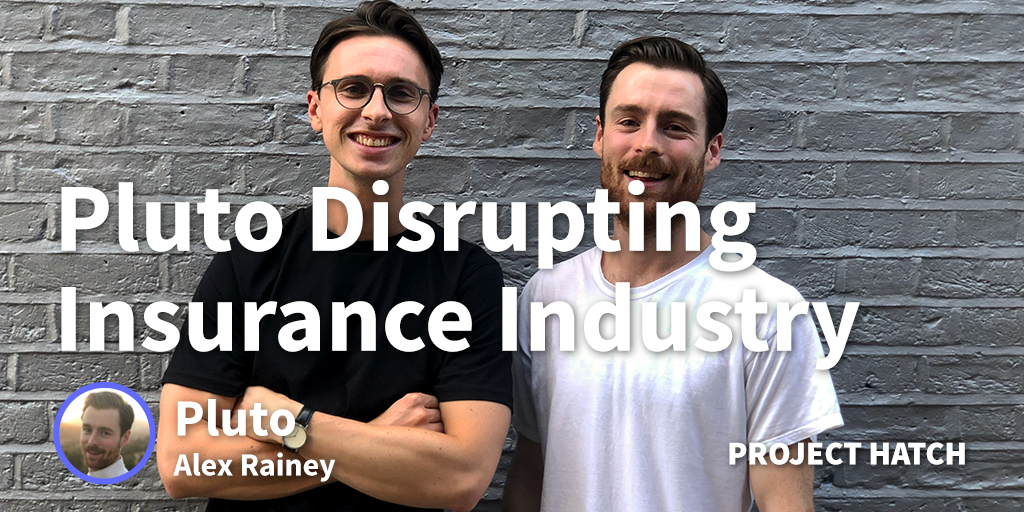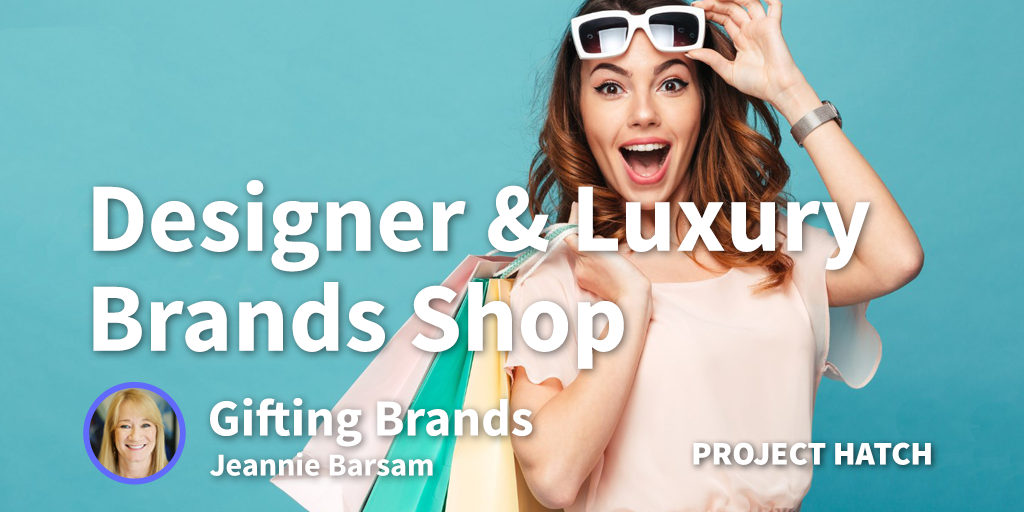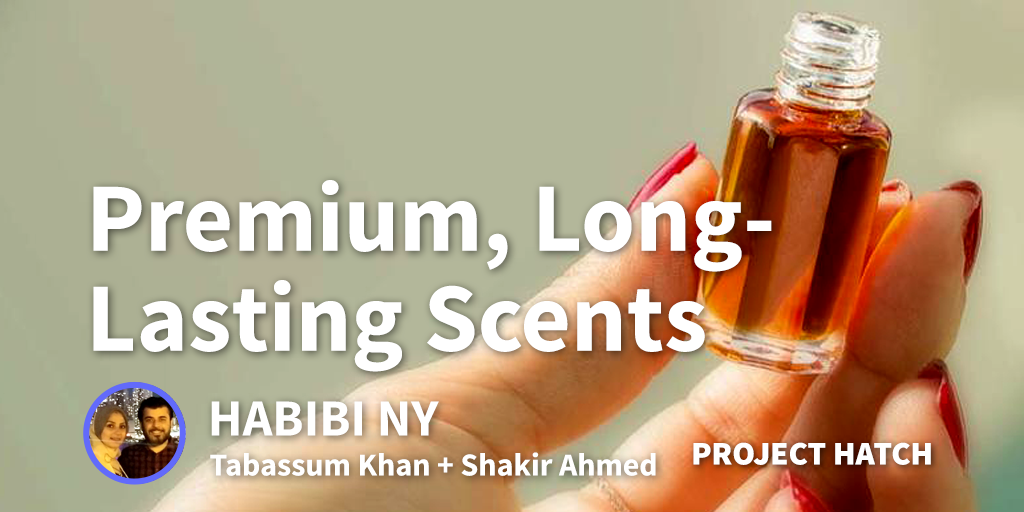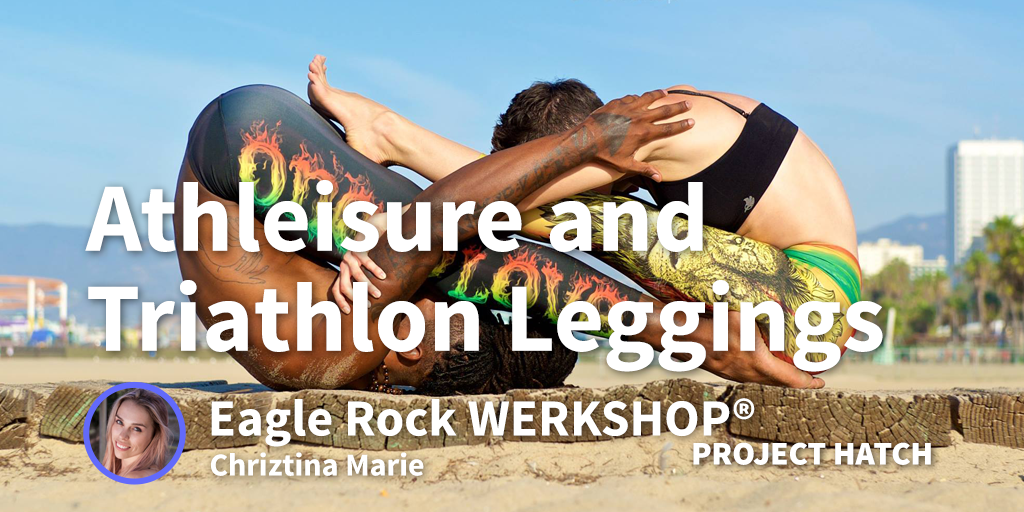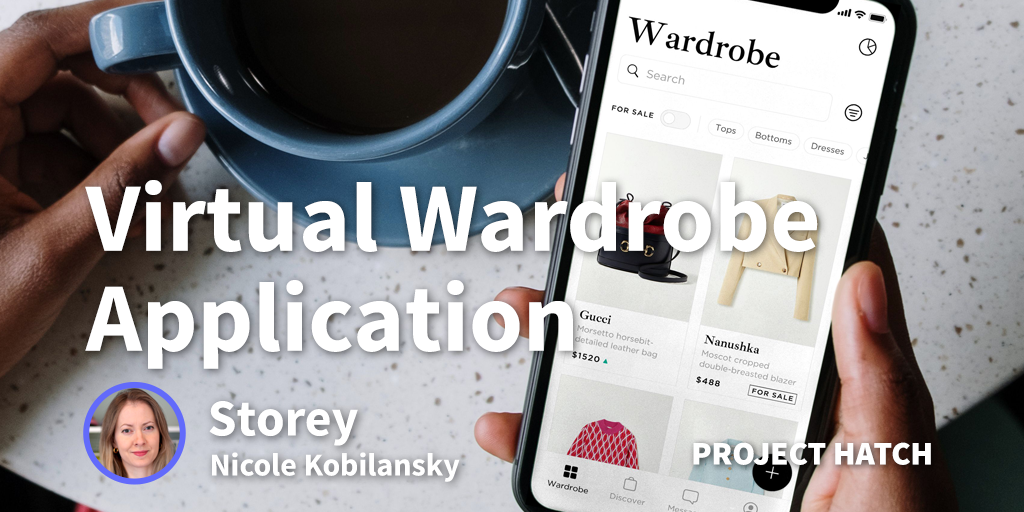Consumers don't trust their insurers. It is a problem that leads to vulnerable people being left with large bills when accidents occur. Alex Rainey along with his two co-founders are trying to change the public perception of insurance. The team are going after the young traveller demographic by trying to offer free upgrades to lounges for delayed flights and 24/7 access to GP's. Their goal is to do what Monzo and Revolut have done for banking, in insurance.
How did you get started in insurance?
My background is in technology. Before Pluto I worked at Accenture Digital for about 7 years where I worked with a number of organizations rolling out digital transformations. We covered e-commerce sites, mobile apps everything across the digital spectrum. For as long as I can remember I’ve wanted to start a business but I never had the idea, never had the team, never had everything in place.
I knew one of my co-founders for a very long time as we started at Accenture together years ago and he introduced me to one of his friends. We chatted as a trio and all had that same entrepreneurial thirst. We weren't quite sure what to build but my background is in technology one of my co-founders background is in design + product and the third co-founder worked in finance.
How are you making those first few sales?
In the first few months we did no paid marketing. We managed to secure a couple of very low level partnerships with travel startups where they would get paid for a referral link. We also really just tried to get the word out as far as we could within the first couple of weeks and there's a couple of reasons that we chose to do that.
If we look at our first month, it was very much a beta phase for us. We learned a lot about the product in that first month. A lot of things didn't work as we thought they were going to, but also some things worked much better than we would have expected. We were very clear that we wanted to have a dry run for a couple of weeks from people that we knew and people that we could pick up the phone to. If they had an issue or they didn't like something or they thought something could be better; we could just pick up the phone and have a 15 minute chat with them. Whereas with an unknown user, you don't really get that opportunity a lot of the time because you might not be able to reach out to them.
We found insurance a really interesting space because it was quite boring. There was so little happening and we looked at how similar industries had been reformed by the likes of Monzo, Revolut and similar. These companies were all popping up at the time and we thought, “why is it so much interesting stuff happening across these different industries” - especially retail banking which is notoriously boring and had lacked any interesting change in decades.
We thought we could use our skills, technology and design to try and shake up this tired industry. We started to dig around in this space found tons of problems although we hadn’t focused solely on travel insurance just yet.
We found that people were massively unsatisfied with their providers. Customer service and user experience was weak. There were loads bad practices around loyalty penalties and unfair and untransparent ways of phrasing and wording policies. It just felt like there was a huge opportunity for a group of us to apply our skills and really have an impact on customers.
So you found that there were problems in the industry - How did you go about solving them?
We started with our first product - helping people to manage and organize with their insurance. From that data we saw that that young people actually don’t have a lot of insurance and the ones that do find it very unsatisfying.
With our first product, we took a bit of a step back and said this is not how we're going to make and impact on this industry. We actually need to behave like an insurer if we're really going to have an impact on this industry because that's where you can affect the claims process and that's going to affect the way people buy.
It enables you to find out what’s within the policy, what's within the cover and how customers are going to get paid out.
The reason that we chose travel is because my co-founders and I love to travel and want to travel as much as possible. Ironically we’re travelling less now we’ve started our travel insurance business.
We’ve also had our fair share of things that go wrong - lost baggage, broken feet, sleeping on the floor of airports, delayed luggage etc.. So we know all about the terrible experiences that occurs when those situations happen.
We thought we could have a positive impact on travelers like ourselves, improve the way people are traveling and improve their holiday experience. At the same time we can take advantage of this industry which is so clearly in need of some disruption and change. So that’s where we came up with the concept of Pluto and that's where we came up with our initial offering - hassle-free travel insurance through your smartphone.
So you came up with the idea and you had an idea of the people you you could work with. What is the next step you took, how did you make it a business?
So this was this is summer last year and I made one of the biggest personal decisions that I've had to make. It was a decision we also weighed up as a team, we thought only one of us needs to leave first because we certainly can't support three of us going full time.
With one of us going full time, we knew that we still had to raise a bit of money because we're living in London, we have partners, homes and bills to pay. We needed to raise some cash to prove the idea, so we built a first release and spend a little bit of money on marketing that was required.
In order to raise the money we need to prove ourselves and show to investors that we are capable of setting up an insurance company because it's not the same as setting up a business in a non-regulated area.
You can’t begin trading until you sort out some of these core essentials and those two core essentials are
Partnering with an underwriter. We went around town to speak to many insurers and loved Zurich the first time we met them. It's been fantastic ever since, they really put their money where our mouth is when it comes to innovation. They’ve also paid out 99% of claims over the past 2 years. These stats made us sure they were the partner for us.
The second thing was getting fully regulated. We managed to get into the FCA’s innovation Sandbox which is a program to help small businesses and also big businesses get regulated or help navigate regulation requirements.
We managed to get those two things in place so we pushed on with the Zurich partnership.
Those two credentials weren't necessarily a done deal when we went to raise money but they were very definitely in the works. This gave us enough confidence and our investors enough confidence to say the wheels are in motion and the right things are in place for us to launch an insurance startup.
So we went out and we effectively raised our SEIS (Seed Enterprise Investment Scheme - provides tax relief to investors in the UK who invest in early stage UK startups) money as most Startups do because the risk is higher. So that offsets the risk for those very early investors. We raised some money from within our network and once you get a couple of investors and they know a couple of investors etc.. In the end our angel investment round was £130k that we took in the summer last year.
Once you have all those three things that place, the money, the underwriters and regulation or the last two are almost signed off it was time for me to take the plunge.
Did you test the concept before or were you able to raise money on the idea?
Yeah, so we pretty much raised money off the fact that we were in the sandbox, the fact that we were in good conversations with Zurich, the team and the pitch deck. We were fortunate to find investors that were very supportive of what we're trying to do and to believe in us and we were the right guys to execute on that. But that's really all we had when we were raising the money. We didn't have customers we didn't have a product we didn't have anything live. There was nothing proven. We had a very strong sense that there was a massive opportunity.
Without a shadow of a doubt it's been harder than we than we thought it was going to be. In terms of disrupting the space, making an impact, being known, raising awareness, being a complete outsider and an unknown in the industry, selling an important financial product, which people want credibility and trust for. Sometimes you can't get everything in place before you take the leap and there's no way that we could've got fully regulated, got the underwriter onboard, build the products and got everything in the right place on the side of our full time jobs. By the time I left my job we were all up to our eyeballs at work and we knew that one of us had to go full time to ease the load.
How do you market the company now?
We got past our first 50 policies in the first couple of weeks just through that initial word of mouth. Then it was the next chapter. We needed to think about how we were going to acquire users and for us there were three main areas that we wanted to explore. They were paid, direct and organic.
Going beyond our network we started a bit of paid on Facebook and Instagram, a much more challenging task than we thought it was going to be. Facebook created these tools making it very easy to run ads but this doesn't mean that it's right for you or the first avenue for you to go down.
We definitely wasted a little bit of money in the early days, but we learnt a lot from that. We were very cautious, very data driven so when we didn't see results in some areas, we would tailor it back and eventually we got to a point with paid marketing where we knew we needed to get some external support in. None of us came from a marketing background, we're very honest and open about that. We got in a small agency to help us manage some of these paid channels. We've seen massive improvements over time as we've done more A/B testing, campaign testing and creative testing to determine the ads that are going to work. We're still on that journey right now - we're not spending a lot of money because you really don’t need to in order to learn. There's a lot we want to do with the product before we start to turn on the taps. We're still very much in the learning environment right now.
The second main area for us was and still is partnerships. We wanted to build on some of the very light touch partnerships that we had. How can we work with other brands that millennials are already using, already trusting. Brands they already love and engage with regularly. How can we find a way to get Pluto within their purchase journey, within their engagement journey, whereby they're recommending or referring customers to Pluto. So we started to work with some finance and travel brands.
We ended up doing a short and sweet pilot with Monzo, which was massively exciting because they're one of the businesses that inspired us to set up our own business. We worked with some really exciting travel startups as well, like Lucky Trip who have started to become a bit of a rocket ship themselves. So that's been awesome to work with some of those companies and we're still working hard to find new partners.
How large of an impact on sales does business cover have? And are there any other areas that you're looking to expand the product offering as well?
Yeah, so business is actually a relatively small, almost an incremental addition to the product so far. I think the biggest probably most interesting change that we've done so far has been group policies. It allows you to add on your partner or a group of friends to a policy and we launched that about a month ago. Since then we've seen 30-35% of our sales that are coming through now are group policies. This is a feature our customers were asking for a lot.
There's quite a few things going on in the next few months. The first is a mobile app. We want to make it an even better experience for people to manage their policies, make claims, get access to around the clock support and check their cover.
Another very interesting feature is a flight delay product and this is still being worked through with our underwriting partner, Zurich. There's still some details to work out. Effectively, we want to allow our customers to register their flights with us and if the flights delayed, we give them instant access to an airport lounge or we give them £25 in cash instantly. This is really exciting for us because it's completely changing the model of how people normally expect to interact with their insurer. We're being proactive and actually giving people benefit without them even asking us for it. We're massively going on the front foot when it comes to helping people get the most out of their policy and ultimately the most out of their trip.
The second exciting feature is allowing people to get access to UK GP when they're abroad through an app, 24/7, wherever they are in the world. Again, it's another kind of service you just do not expect to be getting from your insurer.
What apps do you use day-to-day?
Apart from the usual suspects in the Google Suite and Slack, we’re big Trello users and also just started using Notion much more and absolutely loving it! Also, Intercom for customer support is a lifesaver.
| Company Name: | Pluto |
|---|---|
| Founder: | Alex Rainey |

